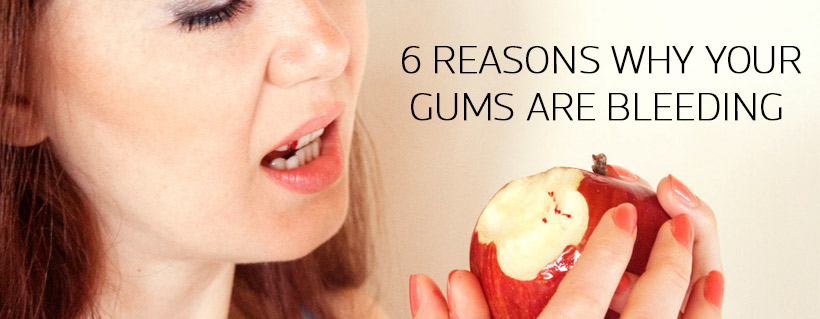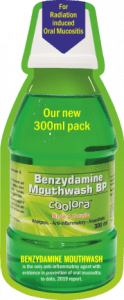Menu

Date: 9th. Nov. 2017
When we talk about oral health, our focus immediately turns to teeth. However, gums also play a significant role in our dental health. And yet, we tend to pay little attention when we see blood in the sink while brushing or flossing. While an occasional bleed is normal due to an injury caused by coarse food particles, a regular occurrence is a major cause of concern.
Since bleedings gums can be caused by a number of problems, it is important to find out the reason behind it. In this article, we will talk about the possible causes of bleeding gums and what you can do about them.
Under poor oral hygiene conditions, plaque levels on your teeth increase. Plaque consists of various bacteria species that cause cavities, gum disease, and other oral complications. Gingivitis means inflammation of gums and is a mild form of gum disease.
Gingivitis is usually painless and is only noticed when you start seeing blood while brushing or flossing. Hence, it is often ignored. However, gingivitis can lead to periodontal disease, causing deterioration of gum tissue and even loss of teeth.
Inflamed gums may make your gums tender and swollen, which causes them to bleed during brushing or flossing.
What You Can Do: Consult your dentist and he or she may prescribe astringent gum paints like Pyosan and Zingisol that stop the bleeding by coagulating blood proteins.
During pregnancy, a woman’s body goes through a lot of hormonal changes. Some of these changes make women more susceptible to developing gingivitis. This condition is called pregnancy gingivitis and over half of pregnant women suffer from it.
What You Can Do: Gingivitis can be avoided by following a regular dental routine comprising of brushing, flossing, rinsing, and bi-annual dental check-ups. It is also important to have a balanced diet as it reduces the chances of contracting gingivitis.
You may think that brushing hard will keep your teeth clean and free from plaque but unfortunately, that’s not all it will do. If you brush too hard, you risk injuring the soft gum tissue and erode the enamel layer of your teeth. So, despite a thorough oral hygiene routine, your brushing technique could be the cause of your bleeding gums.
What You Can Do: Make sure that you brush gently in circular motions. Brushing back and forth irritates your gums and increases the chances of injury.
If you just started flossing or started flossing more often, then you may experience some bleeding. However, this should be only temporary and stop within a week of sticking to a schedule. If you recently switched to a hard -bristled toothbrush then that may also be the cause of your bleeding gums.
What You Can Do: You could try going back to a soft or medium-bristled toothbrush. If the bleeding persists, make sure to consult your dentist. Thermoseal Toothbrushes are specially designed to thoroughly clean your teeth while being gentle on your gums.
If you are a smoker, then you are more prone to experience bleeding gums. When you inhale the smoke from cigarettes, it leaves toxins on your teeth that irritate your gum tissue. Since these toxins cannot be removed by brushing or flossing, they aggravate your gums and cause them to bleed.
In addition, smoking affects your immunity, putting you at risk of contracting infections and interferes with the healing process.
What You Can Do: Quit smoking today! Quitting smoking is not only good for your gums but also for your overall health.
There are many medicines that may cause bleeding gums or conditions that promote bleeding. For example, blood thinning medication can make it easier for your gums to bleed. Furthermore, some medicines prescribed for blood pressure and immunosuppressants can be responsible for inflammation of gums.
In addition, antihistamines, sedatives, anti-depressants, anti-psychotics, and chemotherapy can decrease the salivary flow. Saliva is a natural mechanism to clear stuck food remains and keep your teeth safe from acid attacks. Upon decreased saliva production, bacteria activity increases, increasing the risk of gum disease.
What You Can Do: Ensure that you keep your dentist and physician posted about your medication and tell them about every side effect, however small, that you may be suffering from. He or she will alter your dosage or prescribe an alternative depending on your case.
The simplest way to ensure a healthy mouth is to maintain an impeccable oral health care routine. If you are proactive about personal care and seeing your dentist, you’ll never have to worry about bleeding gums again.
References:


| PRODUCTS | QTY | PRICE | VALUE in INR |
|---|
| PRODUCTS | QTY | PRICE | VALUE in INR |
|---|